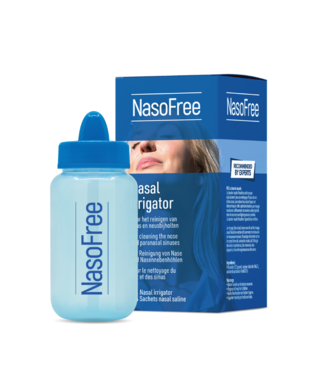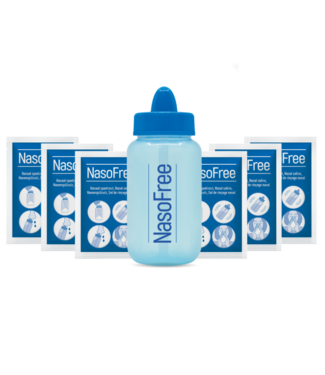
What are nasal polyps?
Nasal polyps are soft, benign swellings in the nose and sinus cavities. They occur as a result of inflammation and swelling of the nasal mucosa, which leads to the formation of small bulges, which are also called polyps.
These polyps can vary in size, from small and barely noticeable to large enough to block the nasal passages. Nasal polyps often develop in both nostrils at the same time.
The symptoms and signs of nasal polyps can vary, but include:
A blocked nose due to a swollen nasal mucosa: This is a common symptom because the polyps can block the nasal passages, making breathing difficult. In some people, these cold symptoms increase when lying down.
Reduced sense of smell: Nasal polyps can affect the sense of smell by blocking the passage of air to the olfactory nerves.
Reduced sense of taste: Because smell and taste are closely linked, a reduced sense of smell can also lead to a reduced sense of taste.
Runny nose: Some people with nasal polyps experience a persistent runny nose due to the inflammation and irritation of the nasal mucosa.
Facial pressure or pain: Large nasal polyps can put pressure on surrounding structures, leading to facial discomfort or pain.
How do nasal polyps develop?
The precise cause of nasal polyps is not fully understood, but there are several factors that may play a role.
Chronic inflammation: Long-term inflammation of the lining of the nose and sinuses, often due to allergies, infections or asthma, can lead to the formation of nasal polyps.
Heredity: There is a genetic component to the development of nasal polyps, meaning that people with a family history of nasal polyps are at greater risk of developing them themselves.
Asthma and aspirin sensitivity : People with asthma or aspirin sensitivity have an increased risk of developing nasal polyps.
Nasal polyps often occur in 'groups'. Fortunately, nasal polyps are almost always harmless.
Treatment options
An ENT doctor can remove nasal polyps for you if they cause many complaints. Monitoring and follow-up are also part of the recovery.
We offer two products at ENT Shop that can help relieve your complaints.
Rinsing your nose with a nasal douche and nasal rinse salt can relieve symptoms of nasal polyps. This makes the airways in your nose a bit freer, allowing you to breathe better through your nose.
You can also use a nasal ointment with honey to care for your nose and nasal mucosa. The nasal ointment ensures that your mucous membranes relax and recover better. In addition, the ointment has an anti-bacterial effect, which also reduces the risk of infection.



